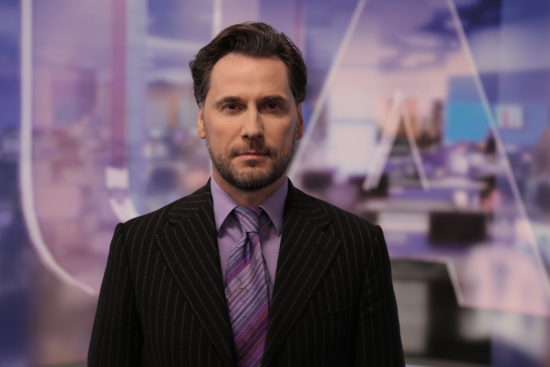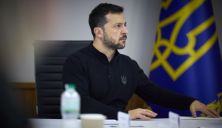So, the term probation originates from the English language, meaning testing. What do we test here with probation?
Well, probation primarily means releasing someone from prison, subject to a set of conditions and based on good behavior. Probation could also mean an alternative sanction: supervision, community work while overseeing that the person is improving his behavior. Probation could also mean the preparation of a prisoner for release. Again, checking whether or not the person is ready to be reintegrated back into society. So at any cycle of behavior and supervision of the behavior of the criminal, we might deal with probation as such. But all in all, I think this means primarily keeping people out of jail, at large, but supervising, monitoring them, and trying to help them to make amends and to change their behavior to be reinjected back into society.
Well, clearly, probation is a process that basically deals with minor law offenders, right?
Well, this is the question of to what extent the society is ready to have the system of punishment that corresponds to the society’s expectations, to the society’s culture, but also to the needs, economic-social needs of the society. Modern societies deal with crime and punishment in a delicate way. If a person commits a crime which might cost millions of euros of damage to persons or the budget, but that person is essential for providing and earning and contributing to the country’s GDP, it is probably more reasonable not to keep that person in jail for a very long time. It is probably more reasonable to allow that person to pay his due to society by paying fines, by probably serving some prison sentence. But by reinjecting him back into society as soon as possible, so this is my answer to your question whether there is a link between the age or the gravity of the offense and probation, the answer…
What is the limit?
The answer is it really depends on the society. Smart societies deal with crime and punishment in a smart way.
The term of probation itself started operating in Ukraine since 2017. It is 2019 now. Has there been any progress? Maybe you have a bright personal story that you could share with our audience?
Well, I think the most important statistic is that for the first time in the history of Ukraine, there are less people in jail, in prison, and in detention of various forms than people on probation, which means that Ukraine is already moving towards a more modern society in the sense that it tries to keep only those people in prison who have not shown that they are ready to integrate back into society. To keep only those who probably represent a higher risk of reoffending, a higher danger to the society if reinjected. So Ukraine is moving towards a more progressive approach and a more modern approach in this respect. But of course, it is still a long way to go, because if we look into the most modern developed societies, the proportion of people in prison and on probation is much higher. Meaning that there are many more people in probation at large, free being supervised, monitored, rather than people being kept in jail. So, I think that the trend is positive, but Ukraine still has a lot to do to move forward and to join the family of more modern, and more civilized approaches to dealing with crime.
You mentioned that probation works three ways, right? It’s an option for three situations. First of all, it’s an alternative to incarceration, second, it is a process of working with a person and getting it out of jail for good behavior, and the last one is reintegrating former prisoners into society. Now is the mechanism of work with law offenders in each of those three situations different, or is it the same?
You have partly answered the question. The whole cycle in which probation requires the participation of different players. It should be, first of all, the probation officers, trained probation officers, who need to work in supervising, monitoring, and trying to change the behavior; social workers, who might be needed to reintegrate people into society, including religious organizations, for instance, who can play a very positive role in this respect; local authorities are absolutely essential, because you need to look for jobs for the people. One of the main reasons why people commit a crime is socio-economic conditions. Poor education contributes to that, but the primary ground almost always is poor socio-economic conditions. So you need to look for jobs, you need to help people to try to find a job, and in this respect, you also need to work with the private sector. The private sector in Ukraine is still very hesitant in trying to take people who have just come out of jail. And of course, you need to work with employers to incentivize them, but also to explain that the risk is probably much smaller than they would think.
What’s the role of a probation officer in this whole mechanism?
This is a very important player in the justice sector. This is also a person, by the way, who helps the court to individualize the sentence. Ukraine, for many decades, historically, due to lack of developed legal tradition, was allowing only lawyers, meaning prosecutors and judges, to define the sentence. But a modern approach is defining the sentence, finding the right balance between asking people to pay for the crime, but at the same time giving a chance of rehabilitation, giving the chance of being for them reinjected into society. It’s a very delicate task. You need to be an expert in social science, you need to be an expert in psychology, and in dealing with people, especially with minors in particular, in order to be able to fix the right sentence for the right person, for a particular crime. So this is clearly not a job just for a person with legal education, so probation officers have to be trained in all these areas alongside knowing the law, of course, in order to help the judiciary in fixing the right sentence. This is called a pre-trial or pre-sentence report — a very important document which is already being used in Ukraine as a tool to help both prosecution and the judiciary in finding the right balance, in individualizing the sentence for a particular person, for a particular crime. So in addition to the aspects in the cycle of probation that you have defined, probation officers carry an important role in supervising, monitoring, trying to change the behavior, advising, but also coordinating between all these different layers: private sector, local authorities, etc.
Who trained probation officers currently working in Ukraine? Since the initiative is pretty young.
Our project funded by the EU has been at the outset of creating the probation service. The discussion started around 2014, immediately after Maidan. In 2015 there were some legislative amendments that were passed already to prepare grounds for the future probation service to become operational. And, as you mentioned, a few years ago, finally, the probation service started working. We are talking about 3,000 or so people, who, some of them, come from the prison service background, some of them come from other backgrounds. All these people have been trained and also the institution has been built in a way to correspond to modern European practices and trends. There are still many more people working in the prison services in Ukraine. And again, if we compare the numbers of prisoners and probationers, you already have more probationers. But if you compare the number of people working for probation service and prisons, the numbers are overwhelmingly in favor of the prison service. So you still need to counterbalance this in order to, again, make sure and also to make society understand that prison is a university of crime. This is actually the place where people do not get corrected, this is the place where new crimes are being prepared. So, this illusion of keeping people closed and trying to expect that once released, they will somehow be part of the society is very naive. So, I think you need to work also with politicians at different levels to communicate this message that keeping people free but, of course, supervising them properly, trying to change their behavior properly is a much more effective way of ensuring this balance between the interest of crime prevention and rehabilitation.
Well, probation services have worked for years already in European countries. Have they proved effective?
Yeah, absolutely. And the best statistic we have is the reoffending rate. People who are committing crimes regularly, you know, who have a propensity to crime are particularly an area which is very sensitive in this respect, and this is an area where really the society’s objective is to try to minimize the damage and try to really prevent the reoffending. We have seen in all the countries that have applied probation that reoffending rates are falling. When you are keeping people shorter in jail, when you are applying various rehabilitation programs, when you are involving the private sector in order to help to find jobs, social workers, and probably also as I mentioned, some informal, non-governmental organizations, religious organizations. This is concerted action, and when that takes place, then, of course, reoffending falls. Even in the most, let’s say, sensitive or difficult areas, such as, for instance, sexual crime. This is the crime where the reoffending risk is always among the highest because this goes down to the psychology and underlying deep psychiatric, psychological problems that people have. But even in those areas, reoffending rates can be reduced with a proper application of probation.
Well, you’ve been working with Pravo-Justice project that helped a lot in implementing the probation system in Ukraine. However, the project ends in 2020. What’s next?
Well, it’s the end of 2019, so we still have more than a year to go. We have a very ambitious objective in a way, one of the purposes for a project like ours is to find the right scope, find the right focus to really help Ukraine in those areas where we can see some tangible results, some quick wins or low hanging fruit. We sometimes need to be able to prioritize. And of course, probation has been one of these priorities. Alongside probation, we worked in other areas, and we continue to work in other areas such as helping reset the judiciary in terms of the way that judges are selected, the judiciary government system is run, property rights protection has been a very important objective of ours, where we deal with notaries, enforcement of court decisions, bankruptcy, business disputes, and the regulation of better, more accessible, more effective court proceedings in this respect, so we still have a rather ambitious list of tasks. But clearly, probation remains one of the primary ones because this is an area where Ukraine is already on a good track, there’s already some good traction, but we just need to make an extra push. Including with politicians, as I said, this should not be neglected. Politicians should bring this message in a more affirmative way that probation and keeping people free actually serves better. The overall objective to strike a balance between crime prevention and peace in society.













